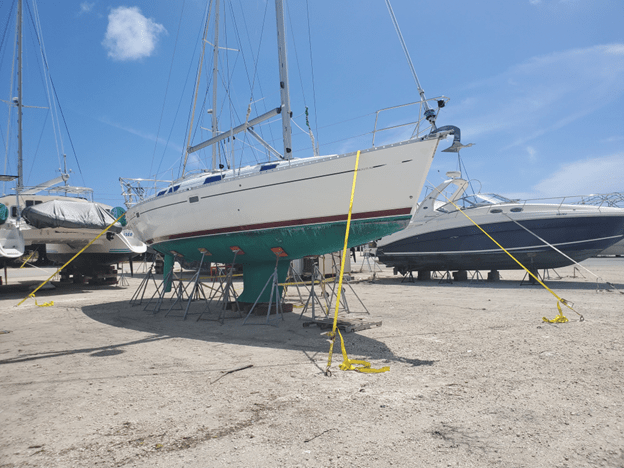Unfortunately for much of the United States people are working hard to prepare their boats for winter. The effort to do this correctly will pay off in the long run. Here is a list to assist you in your preparations:
Decommissioning – when leaving the boat for a long time
Remove all sails, wash, dry and stow
Remove lines and wash, dry and stow
Mouse halyards, wash, dry & stow
Release tension on stays and shrouds
Drain fuel from dinghy outboard
Wash dinghy, dry, deflate and stow
Ensure all dock lines are secure, add extras, check for chafe points
Add extra fenders
Fill diesel tanks
Fill propane gas tanks and turn them off
Cover life raft
Cover instruments and compass
Remove dodger and Bimini or securely lash
Securely stow and lock away deck gear
Switch off batteries and all electrical items except auto bilge
Clean the bilge
Empty holding tanks and flush with fresh water
Close seacocks
Pickle water maker
Empty freshwater tanks
Rinse pipes with water and vinegar
Remove depth sounder and log sensors
Stow all items
Defrost fridge/freezer and leave open
Remove perishable food
Remove all rubbish
Clean all surfaces
Leave lockers open
Add dehumidifiers
Lock companionway hatch and lockers
Leave contact info on board and with marina or boatyard
Leave spare access keys with marina
Winterization
Storage and Winterization
Where and how will you store your boat? You have many options to choose from: your garage, backyard, storage unit, a winterized boat barn.
To winterize a boat, you haul the boat out of the water, draining
plumbing systems and fluids, add anti-freeze, and shrink-wrap the hull or wrap your boat to seal it from debris. Determine where you will store the boat for the off-season indoors or outdoors. There are services that will handle this process for you.
S T O R I N G B O A T S O P T I O N S A N D W H A T D O E S I T M E A N T O W I N T E R I Z E A B O A T ?
As soon as the weather gets below 32 degrees, water begins to freeze, with water with impurities or saltwater in it starting to freeze at 28 degrees. In most cases, the water will not freeze solid (leading to cracked engine blocks) until the temperatures stay below 32 for several days and nights.
So, if you live in a location where you frequently have cold days and nights, this process is critical.

